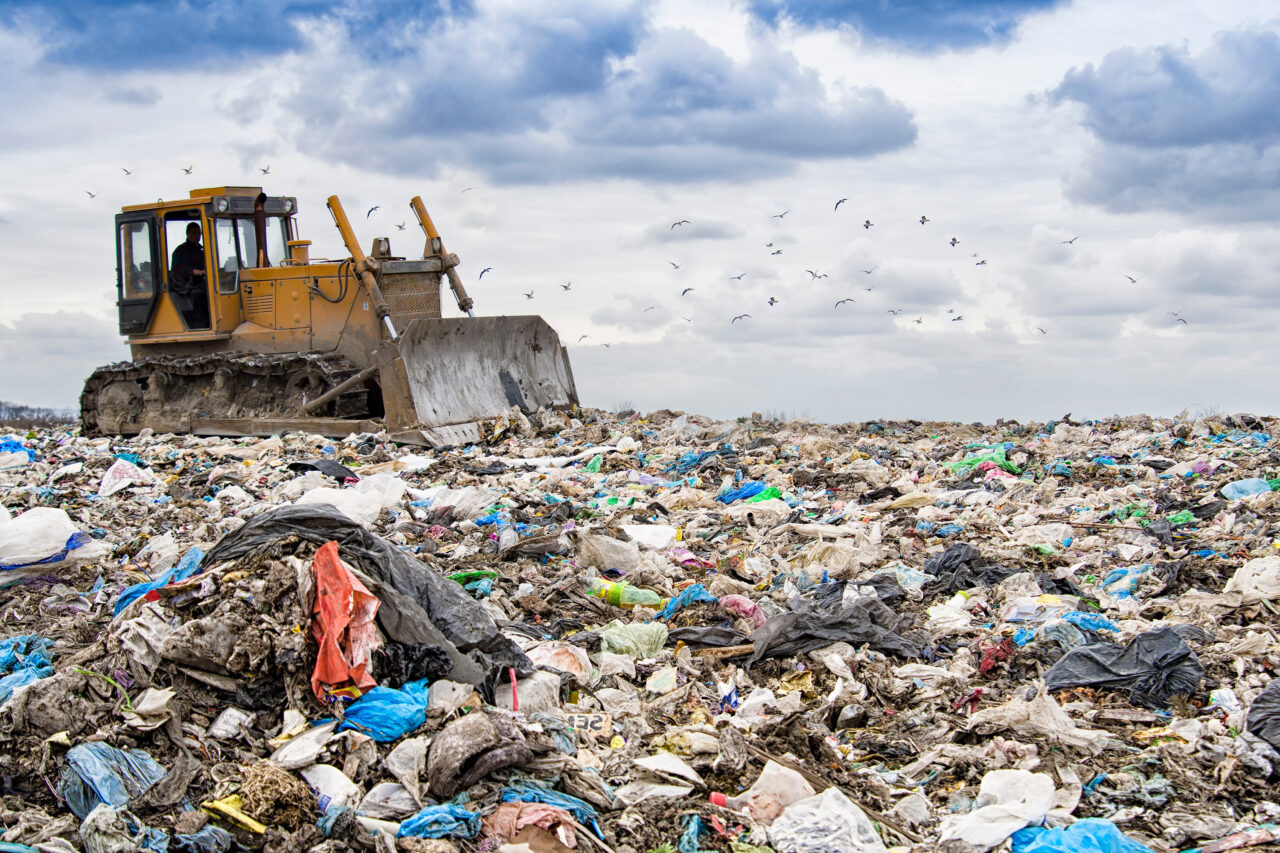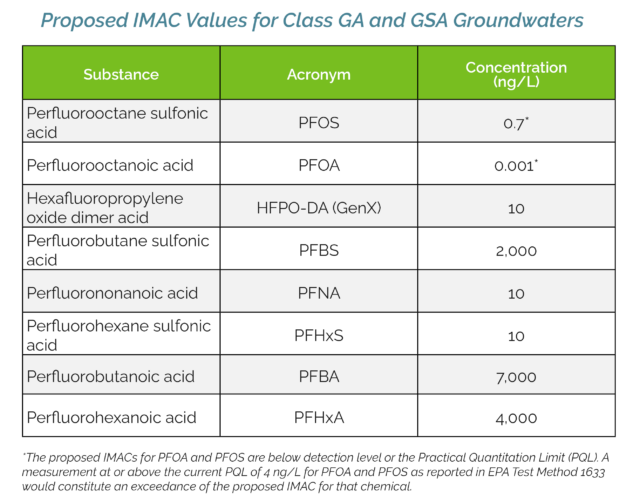Key Takeaways for North Carolina Landfills From the 2024 NC SWANA Fall Conference

In a rapidly changing regulatory environment, staying ahead of compliance requirements is more crucial than ever for landfill operators. Several members of LaBella’s Waste & Recycling group recently gathered with industry experts at the 2024 Fall Conference of the Solid Waste Association of North America’s North Carolina Chapter. This year’s event covered critical topics such as the monitoring of per- and polyfluoroalkyl substances (PFAS) and associated groundwater standards—issues that have significant implications for landfill operations across the state. Below, we share essential information presented during the conference and its potential impact on your landfill’s compliance and economic viability.
PFAS Monitoring Update: NCDEQ’s Next Steps
A key focus at the conference was the recently mandated PFAS monitoring requirements for all sanitary landfills in North Carolina. Jason Watkins, Field Operations Branch Head of the Solid Waste Section at the North Carolina Department of Environmental Quality (NCDEQ), provided vital updates on how the monitoring process is progressing. Of the 278 landfills required to conduct PFAS monitoring for two events, 230 have completed at least one monitoring event. NCDEQ will make all monitoring data and reports available to the public via Laserfiche and update its website once data review and processing is complete.
NCDEQ is prioritizing landfills for further action based on PFAS concentration levels, offsite migration, and potential impacts to offsite receptors. Facilities with PFAS concentrations between 1,000 ng/L and 99,000 ng/L (i.e., 4- or 5-digit parts per trillion range) will be the first to undergo additional review. Furthermore, NCDEQ may require updated receptor surveys at many, if not most, landfills. If at-risk receptors, such as potable supply wells, are identified, they may also need to be sampled for PFAS. NCDEQ’s focus will be on determining the source of the PFAS, especially at lined facilities. Depending on the results, facilities may be required to make changes to landfill design, construction, operations, or maintenance.
If your landfill does not exceed the proposed standards for PFAS, it is likely that at least some level of routine PFAS monitoring will continue with more frequent sampling in certain cases and periodic full sampling to re-evaluate. However, if exceedances are identified, NCDEQ will begin issuing Notices of Regulatory Requirements (NORRs) in October 2024. These letters will outline the necessary actions your landfill must take to address concerns, including the need for additional investigation, assessments, or corrective measures.
Proposed PFAS Groundwater Standards
On September 11, 2024, the Groundwater and Waste Management Committee voted to advance a proposed rule amendment to 15A NCAC 02L .0202, setting groundwater quality standards for PFOA, PFOS, and GenX—three of the eight PFAS compounds initially proposed by NCDEQ—to the full Environmental Management Commission (EMC). This request includes public notice and hearings, as well as a review of the associated Fiscal and Regulatory Impact Analysis. At this time, no actions were taken by the EMC regarding surface water standards.
Additionally, in July 2024, NCDEQ received a request to establish Interim Maximum Allowable Concentrations (IMACs) for all eight PFAS compounds—PFOS, PFOA, GenX, PFBS, PFNA, PFHxS, PFBA, and PFHxA—at the levels proposed earlier this year to the Groundwater and Waste Management Committee. These IMACs will serve as the baseline for determining whether exceedances at your landfill require further investigation or corrective action. The public comment period for this request will remain open until October 4, 2024. Once finalized, the IMACs will take effect on October 15, 2024, and will apply to groundwater at landfills.
Below is a summary of the proposed IMAC values for Class GA and GSA groundwaters, which may impact your facility.

What’s Next for Your Landfill?
While many facilities have reported exceedances for at least one of the eight PFAS compounds on the IMAC list, current data suggest that most are not expected to be NCDEQ’s highest priority for immediate action. Nevertheless, it is important to be prepared for a potential NORR letter from NCDEQ, which may arrive between October 15, 2024, and the end of the year, requesting additional PFAS investigation or assessment.
As the regulatory landscape around PFAS continues to evolve, staying informed and compliant is essential. LaBella’s Waste & Recycling group has the expertise to guide your landfill through these complex requirements, from monitoring and assessments to potential corrective actions. If you receive a NORR letter, we are ready to help you review the document, explore your options, and develop a response strategy to meet regulatory requirements.

About the Author
John Westerfield, PGEnvironmental Director, Waste & Recycling
John has been in the environmental consulting industry for over 30 years, with more than 14 years of experience providing senior technical guidance to staff managing environmental compliance programs for solid waste facilities in Virginia, North Carolina, South Carolina, and Maryland. He provides technical oversight and review of all environmental deliverables and is responsible for client and regulator relations. Additionally, John supports LaBella’s environmental staff and programs with environmental training, technical standards, standard operating guidelines, quality control, and health and safety policies. He has also developed project management tools used by staff to ensure regulatory deadlines are met.
John’s project management expertise includes landfill gas monitoring, reporting, and remediation; groundwater characterization and geophysical studies at solid waste landfills; groundwater and dual phase extraction system design and installation; conducting and overseeing Phase I and Phase II environmental assessments and investigations; remedial action plans; facility financial assurance; and NPDES monitoring and reporting.